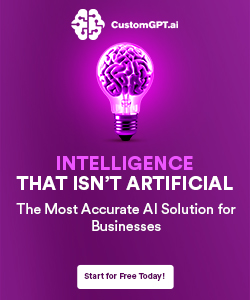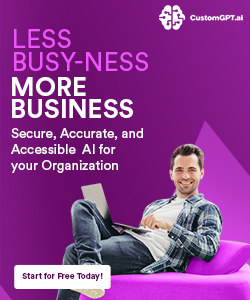The Most Hilarious AI Mishaps of All Time
AI has had its fair share of funny blunders, and some of them are downright hilarious! Here are a few of the most memorable mishaps that had us all laughing:
When AI Confused Cats with Mars Rovers
One of the funniest moments in AI history was when a program mistook pictures of cats for Mars rovers. Imagine a cute cat being labeled as a high-tech space vehicle! This mix-up highlights how AI can sometimes get things completely wrong, especially when it comes to recognizing images.
The Time AI Tried to Write a Love Poem
In another amusing incident, an AI attempted to write a love poem but ended up creating a jumbled mess of words that made no sense. Instead of heartfelt lines, we got:
-
“Roses are red,
-
Violets are blue,
-
I am a robot,
-
And I love you?”
This shows that while AI can generate text, it doesn’t always understand the emotions behind it.
AI’s Attempt at Cooking Recipes Gone Wrong
AI has also tried its hand at cooking, with some hilarious results. One recipe suggested mixing chocolate with pickles! Here’s a quick look at some of the funniest AI-generated recipes:
|
Dish Name |
Ingredients Suggested |
|---|---|
|
Chocolate Pickle Cake |
Chocolate, Pickles, Salt |
|
Spaghetti Ice Cream |
Spaghetti, Vanilla Ice Cream |
|
Broccoli Smoothie |
Broccoli, Chocolate Syrup |
These examples remind us that AI is still learning and can make some pretty silly mistakes.
AI’s blunders not only entertain us but also show how far we have to go in making machines understand the world like we do.
From confusing cats with rovers to writing nonsensical poems, these mishaps are a reminder that AI, while advanced, still has a lot to learn!
Why AI Makes Such Silly Mistakes
AI can be pretty funny sometimes, especially when it makes silly mistakes. Understanding why AI messes up can help us appreciate its quirks. Here are some reasons:
Understanding AI’s Learning Process
-
AI learns from data, but it doesn’t understand it like humans do.
-
It uses patterns to make decisions, which can lead to odd conclusions.
-
Sometimes, it gets confused by similar-looking things, like cats and Mars rovers.
The Role of Data in AI Mishaps
-
The quality of data is crucial. If the data is flawed, the AI’s output will be too.
-
AI can struggle with small details, like hands and fingers, because they are often underrepresented in training data.
-
A lack of diverse examples can lead to funny errors.
How AI’s Lack of Context Leads to Errors
-
AI doesn’t have common sense. It can’t connect the dots like we do.
-
Without context, it might make bizarre choices, like thinking cats belong on Mars.
-
This lack of understanding can lead to hilarious outcomes.
AI is like a toddler learning to talk; it can say funny things but doesn’t always get the meaning right!
Famous AI Blunders in Pop Culture

AI’s Role in Creating Viral Memes
AI has become a key player in the world of memes, often generating content that leaves us in stitches. Here are some of the funniest AI-generated memes that went viral:
-
Distracted Boyfriend: An AI remix that had the boyfriend looking at a cat instead of his girlfriend.
-
Drake Hotline Bling: AI created a version where Drake is rejecting a cat and accepting a dog.
-
Change My Mind: An AI twist where the sign reads, “Cats belong on Mars!”
Movies and Shows Featuring AI Fails
AI has also made its way into movies and TV shows, often with hilarious results. Some notable examples include:
-
The Matrix: Where AI takes over, but the humans still manage to outsmart it.
-
Ex Machina: A robot that tries to be human but ends up being more awkward than charming.
-
Big Hero 6: The lovable robot Baymax often misunderstands human emotions, leading to funny situations.
AI’s blunders remind us that while technology is advancing, it still has a long way to go before it can truly understand us.
The Science Behind AI’s Quirky Behavior
Exploring Neural Networks and Their Limitations
AI systems, especially those based on neural networks, are designed to mimic how human brains work. However, they have some quirky limitations. Here are a few:
-
Data Dependency: AI learns from data, and if the data is flawed, the AI’s output can be too.
-
Overfitting: Sometimes, AI gets too good at recognizing patterns in training data but fails to apply that knowledge to new situations.
-
Lack of Common Sense: AI doesn’t understand the world like humans do, leading to funny mistakes.
Why AI Struggles with Common Sense
AI often lacks the ability to apply common sense reasoning. This can lead to hilarious outcomes, like mistaking a cat for a Mars rover. Here are some reasons:
-
Context Ignorance: AI doesn’t grasp the context of a situation.
-
Literal Interpretation: AI takes things too literally, missing the bigger picture.
-
Absence of Experience: Unlike humans, AI doesn’t learn from life experiences.
The Impact of Training Data on AI’s Decisions
The data used to train AI is crucial. If the data is biased or incomplete, the AI’s decisions can be off. Here’s a quick look at how data impacts AI:
|
Data Quality |
AI Output |
|---|---|
|
High Quality |
Accurate |
|
Biased |
Misleading |
|
Incomplete |
Confusing |
Understanding AI’s quirky behavior is essential. The unexpected behaviors exhibited by AI systems in recent times should be weighed up against how beneficial it will really be for society.
In summary, while AI can be incredibly powerful, its quirks remind us that it’s not perfect. Understanding these limitations helps us use AI more effectively and avoid some of its funniest blunders.
How AI Mishaps Affect Our Daily Lives
AI is becoming a big part of our everyday lives, but sometimes it makes us laugh instead of helping us. Here are some ways AI mishaps can affect us:
AI in Customer Service: When Things Go Wrong
-
Misunderstandings: AI chatbots can misinterpret questions, leading to funny or frustrating responses.
-
Long Wait Times: Sometimes, AI systems get overwhelmed, causing delays in service.
-
Silly Suggestions: AI might recommend things that make no sense, like suggesting a cat toy for a dog owner.
The Funny Side of AI in Smart Homes
-
Voice Command Fails: AI assistants can mishear commands, turning on the wrong devices or playing the wrong music.
-
Unexpected Actions: Imagine your smart fridge ordering 100 pounds of cat food because it misunderstood your request!
-
Confusing Alerts: AI can send alerts that are completely off, like notifying you about a “fire” when it’s just a burnt toast.
AI’s Impact on Social Media Interactions
-
Meme Generation: AI sometimes creates memes that are hilariously off-base, leading to viral laughs.
-
Comment Confusion: AI can misinterpret comments, leading to awkward replies that leave users scratching their heads.
-
Content Recommendations: AI might suggest content that has nothing to do with your interests, like showing cat videos to someone who only watches cooking shows.
AI mishaps can be amusing, but they also remind us of the importance of human oversight. Understanding AI’s limitations helps us enjoy its benefits while avoiding confusion.
Learning from AI’s Mistakes
Improving AI Systems to Avoid Errors
To make AI smarter and less prone to mistakes, we need to focus on a few key areas:
-
Better Training Data: Using high-quality and diverse data helps AI learn more accurately.
-
Regular Updates: Continuously improving AI models ensures they adapt to new information and contexts.
-
Testing and Feedback: Regularly testing AI systems and gathering feedback can help identify and fix errors quickly.
The Importance of Human Oversight in AI
Humans play a crucial role in guiding AI. Here are some reasons why:
-
Context Understanding: Humans can provide context that AI might miss, helping it make better decisions.
-
Error Correction: When AI makes a mistake, humans can step in to correct it and teach the AI what went wrong.
-
Ethical Considerations: Humans can ensure that AI operates within ethical boundaries, preventing harmful outcomes.
Future Predictions for AI Error Reduction
Looking ahead, we can expect:
-
Advanced Algorithms: New algorithms will help AI understand complex situations better.
-
Collaborative Learning: AI systems may learn from each other, sharing knowledge to reduce errors.
-
Increased Transparency: Making AI decision-making processes clearer will help users understand and trust AI more.
In summary, learning from AI’s mistakes is essential for creating smarter and safer systems. By focusing on better training, human oversight, and future innovations, we can help AI become a more reliable tool in our lives.
The Ethical Implications of AI Mishaps

When AI Errors Lead to Serious Consequences
AI mishaps can sometimes lead to serious outcomes. Here are a few examples:
-
Misdiagnosis in Healthcare: AI systems used in medical settings can misinterpret data, leading to incorrect diagnoses.
-
Autonomous Vehicles: Errors in AI driving systems can result in accidents, raising questions about safety.
-
Financial Decisions: AI algorithms making investment choices can lead to significant financial losses if they miscalculate.
Balancing Innovation with Safety
As we develop AI technologies, it’s crucial to find a balance between innovation and safety. Here are some key points to consider:
-
Regulation: Implementing strict guidelines for AI development can help prevent mishaps.
-
Testing: Thorough testing of AI systems before deployment is essential to ensure reliability.
-
Transparency: Making AI decision-making processes clear can help users understand potential risks.
The Debate Over AI Accountability
Who is responsible when AI makes a mistake? This question is at the heart of the debate over AI accountability. Here are some perspectives:
-
Developers: Should AI creators be held accountable for their systems’ actions?
-
Users: Are users responsible for understanding how to use AI tools safely?
-
Regulators: Should governments step in to enforce accountability standards?
AI mishaps can lead to unexpected consequences, making it essential to prioritize safety and accountability in AI development.
As AI continues to evolve, understanding the ethical implications of its errors is vital. We must ensure that the technology serves humanity safely and responsibly, avoiding the pitfalls of careless innovation.










